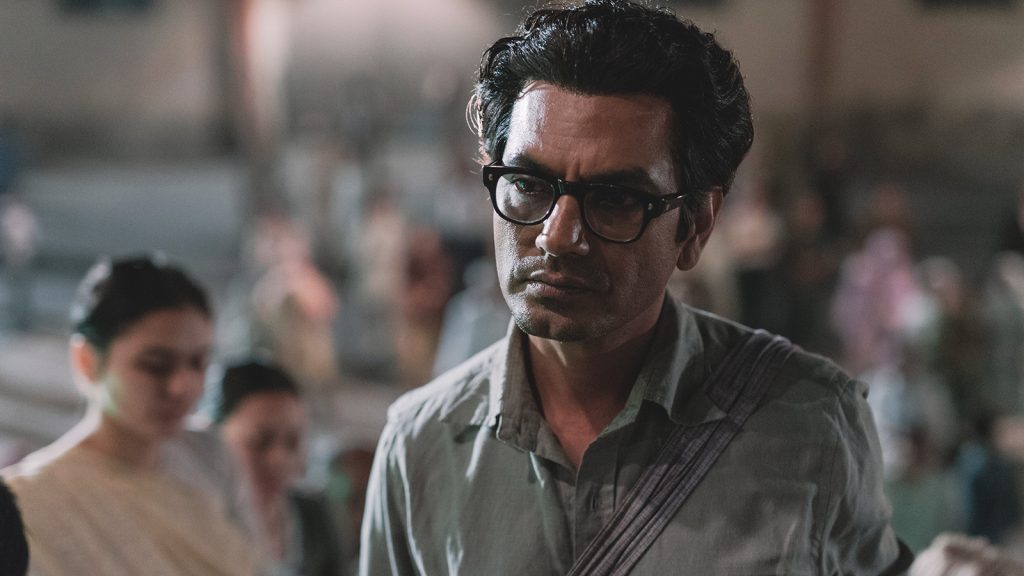When director Nandita Das decided to make a movie based on the life of this author, it generated a lot of buzz.
Sadat Hossain Manto was a Pakistani author and playwright known for his candidness and his uncensored portrayal of society’s atrocities. More specifically, his writings are vivid descriptions of the hardships faced by the people of the subcontinent during the partition in 1947. The movie is till date banned in Pakistan.
The world premiere of ‘Manto’ took place at the 71st Cannes Film Festival. It has been applauded at various other film festivals as well. It was also screened at the Dhaka Literature Festival 2018 in a full packed auditorium.
Life of an Anguished Author
The movie covers only a few years of Manto’s life. The later few, to be exact. It begins with Manto working in Bombay for the studio owned by the famous actor, Ashok Kumar. Soon after, the Hindu-Muslim riots, Manto faces the tough choice of having to leave his beloved Bombay, guilty of being a Muslim. This separation between him and Bombay tears him apart. Cases are filed against his stories for being obscene and inappropriate. But as Manto says “If you cannot bear these stories, then the society is unbearable.”
As an actor, Nawazuddin has proved his worth again. He is marvelous and has done justice to his reputation.
The similarities between him and the real Manto are striking. Nawazuddin will become your Manto. Nawazuddin, apparently took only one rupee as his remuneration because of his admiration for Manto and his friendship with Nandita Das. Veteran actors like Rishi Kapoor and Paresh Rawal, musician Javed Akhter played small cameos free of charge. The movie has been graced by the performances of some dedicated and talented actors. Artists like Ranvir Shorey, Divya Dutta, Purab Kohli, Rajshri Deshpande and Swanand Kirkire also did not charge for their services.
Manto is the second movie Nandita Das has directed. She has researched about Manto for years and it shows. She did not only show us what the author’s life was like. She also brought to life few of Manto’s short stories in between. Amazingly enough, it never seemed out of place. Manto’s short stories and his life are intertwined like that. After all, he did write about the atrocities he was witnessing.
Depicting the Subcontinent’s Troubled Past
The Lahore of the 1940s was recreated in present day Gujarat, India. The set and the costume will transport you to the 1940s. The apprehension of being stuck in a shoe shop during a riot or the helplessness of a father searching for his daughter who got lost during the communal riots, these scenes have been executed deftly.
“I did not make this film in the hope of creating heroes. Manto was unsparing of everyone, including himself.
He would have liked me to portray him with all his warts and blemishes and not put him on a pedestal. I have tried to show him as honestly as he shows his characters and if that makes him complex and even less likeable, then so be it. In fact, for me it is a way of questioning our own morality, and our righteousness that at times prevents us from seeing the essence of things.” — says Nandita Das
The music adds to the aura of the movie. A couple of songs were modern renditions of old ones and another used the verses from Poet Faiz Ahmed Faiz’s poem ‘Bol ke labh azad hain.’
Manto is a movie about a man who was courageous, empathetic and deeply troubled by the depravity in his surroundings. It resonates with those people who were forced to leave their homes, people who became victims because of their caste or religion, people who face discrimination because of their race. Manto himself and this movie is relevant today because these occurrences are still prevalent in society. The partition in 1947 was neither the beginning nor the end of communal riots which destroyed lives. What we need are people like Manto to speak up for those who are deprived and pushed back.
Like the poet Faiz Ahmed Faiz wrote “Speak, for your lips are free. Speak, your tongue is still your own. This straight body still is yours. Speak, your life is still your own.”
